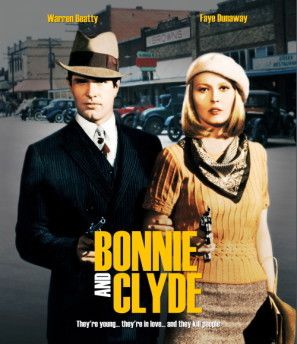By William Ikhianosimhe Orbih.
If you are yet to watch Bonnie and Clyde, watch it! It is a 1967 movie, so prepare to not enjoy it. The 111 minutes you will spend watching it, you will never get back. I dare you to finish it. You can’t. I couldn’t either, especially because I watched it on a very boring 4 hours flight.
Coronavirus has made flying a not so joyous experience, even if your destination is the city of the angels, known in Spanish as Los Angeles. I can’t wait to see the end of coronavirus, just as I couldn’t wait to see the end of the shooting and killings in the nearly two-hour-long movie.
Skip the first five minutes of Bonnie and Clyde; it begins with a naked Bonnie. Afterward, it is a tale of love at first sight, a love story of the most humorous order. It is not like the biblical love tale of Jacob and Rebecca, the lady Jacob worked 14 years just to marry. It is not like Shakespeare’s Romeo and Juliet, whom even death could not do apart.
It is not even like the love story of Sango and Oya, arguably the most “powerful” couple humankind has ever seen. It is the story of two individuals who lived out their love life robbing banks. Crime turns Bonnie on—the only thing that does, and crime was the only thing that filled Clyde’s mind and perhaps the reason he could never get on.
If you still don’t want to watch it despite this hype, you can simply listen to Jay-Z and Beyonce’s 2008 track 03’ Bonnie and Clyde. I am not saying that the music track summarizes the movie. At least, it accurately captures the attitude of Bonnie towards Clyde and vice versa. The last three lines of the second stanza of rap aptly summarize it:
She [Bonnie] do anything necessary for him
And I [Clyde] do anything necessary for her
So don’t let the necessary occur, yep!
The “anything necessary” Jay Z is talking about includes putting bullets in people’s chest, taking people’s money by force—aka crime. Now, the song does not accurately depict the movie because it does not pass the movie’s most important message: Crime does not pay. Criminals never get away with their crimes.
Often, they die violently in the hands of law enforcement; most times, they are apprehended and tucked away for good. As Lucky Dube sang in his evergreen song “Prisoner,” “crime does not pay.” Crime never pays! It did not pay for Bonnie and Clyde. For all their romance, they died terrible deaths in the hands of law enforcement.

There are some special crops of criminals that, however, often get away with their crimes. Powerful people, in general, often get away with their misdemeanors. Armed with a wad of cash, that is the purchasing power to buy even the law to their favor, they hardly ever get to pay for their crimes.
This is the major reason it is difficult to convince many people that the term “lawyer” is not synonymous with the term “liar” or that the learned profession cares about justice at all. Chrisvic Peters, my learned sweetheart has been trying unsuccessfully to convince me otherwise. Try harder babe!
The real thieves in Nigeria (in America and everywhere else in the world) never get the burning necklace. It is the petty thieves in Oshodi and Aba market. I am talking about politicians and top-level civil servants, and other people in charge of public funds. Recently, another category of criminals has joined the list.
This special crop of criminals do not just escape death and imprisonment; they come away with compensation. I am talking about criminals recently compensated with taxpayers’ money to the tune of 800 million naira.
I am talking about terrorists being begged to come to the negotiation table of the Federal Government of Nigeria. I am talking about killer headsmen having government officials plead their cause and justify their evil.
I am talking about kidnappers being urged to repent with the promise of forgiveness, rehabilitation, and compensation. I am talking about repented Boko Haram terrorists given juicy scholarships by the same Nigerian government that cannot keep public universities open all year round.
Compensating is not always a bad thing, given the reality of structural injustice and the fact that most criminals are perpetrators of crime only because they were first victims of crimes themselves. The problem is how the Nigerian government is going about it.
So far, the government has not been able to prove that they are sincere and not nepotic. The way the government is treating this special crop of criminals in Nigeria is disheartening. Many young people are beginning to wonder if crime pays after all.
There is enough hardship to turn virtually every young man and woman in Nigeria into Bonnies and Clydes. Many are held back by the conviction that Dube is right when he said crime does not pay. Only God can tell what will become of our polity when more and more young people begin to think that perhaps Dube was wrong and crime pays after all!
May God help us all.




